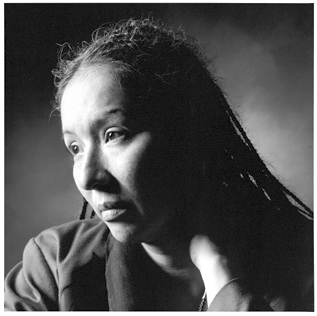“We must recognize that
we have hit bottom and that war dehumanizes and dehumanizes us,"
– Juan Manuel Santos,
President of Columbia
This month marks the 15th
anniversary of the kidnapping and assassination of Menominee Ingrid
Washinawatok El Issa. It also marks a new set of peace talks between
the many forces of Colombia, in particular the government and the
Revolutionary Armed Forces of Columbia (FARC). Those talks are to be
held in Cuba this spring.
It is long ago, but I knew her well
and I often ask myself the question, “What would Ingrid do?” She
was a good friend and colleague of mine, as we co-chaired the
Indigenous Women’s Network together for a decade. In her life she
led an exemplary role in the Indigenous community. Also known as
Peqtaw-Metamoh (Flying Bird Woman), she served as the Chair of the
NGO Committee on the United Nations International Decade of the
World’s Indigenous Peoples and as the Executive Director of the New
York-based Fund for Four Directions.
She is also known in her death. The
FARC kidnapped Ingrid when she left the U’wa territory who were
protecting their land from Occidental Petroleum and creating an
Indigenous education system. She was kidnapped by the FARC, along
with Hawaiian activist Lahe’ena’e Gay and environmental activist
Terence Freitas and assassinated on March 4 in Venezuela.
I ask the question, “ What would
Ingrid do?” when I am vexed with our world and my own people. I
also ask that because I believe that some of Ingrid’s hopes being
actualized in peace talks. The talks scheduled for Cuba will address
the longest hemispheric war.
The
Huffington Post reports, “Colombia’s
internal conflict has claimed at least 220,000 lives since 1958, and
more than four of every five victims have been civilian
noncombatants. From 1996 to 2005, on average, someone was kidnapped
every eight hours in Colombia and every day someone fell victim to an
anti-personnel mine, according to a newly-issued 434-page report
entitled ‘Enough Already: Memories of War and Dignity.’”
The report documents 1,982
massacres between 1980 and 2012, attributing 1,166 to paramilitaries,
343 to rebels, 295 to government security forces and the remainder to
unknown armed groups. It estimates the number of Colombians forcibly
displaced by the conflict at 5.7 million. Just as a reference, we
U.S. taxpayers have an interest in this. The U.S. — for many years
— financed a significant amount of the Colombian military budget
and providing many weapons, as a part of its War on Drugs.
The report was produced by
the National Center of Historical Memory, which was created under a
2011 law designed to indemnify victims of the conflict and return
stolen land. The law prefaced the peace talks.
I live in a country that
spends one-third of my tax dollars on the military, so I do not
actually know how peace is found. So say that you wanted peace, how
would that work out?
The U.S. Institute for Peace
scholar Virginia Bouvier discusses the significance of this set of
peace negotiations. She first points out a very big problem: “The
distribution of wealth in Colombia is one of the worst in the world
and has become more pronounced in the last decade.” She then notes,
“The parties have agreed on a limited, five-point agenda that will
include land policies, political participation, the end of the
conflict (this would include among other things questions of
ceasefires and cessation of hostilities, security guarantees, and
addressing paramilitary violence), drug production and trafficking,
and truth and reparations for victims.”
Agrarian policy is the
first item on the agenda for the meetings, co sponsored by Norway,
Venezuela and Cuba. The order of the agenda is important. Often
parties choose to begin with the easier items in order to build
confidence and show early results. Here, the parties have agreed to
begin with the issue that is perhaps the most difficult: Who owns the
land.
Land has been at the crux of the insurgents’ agenda from
the start and there seems to already be at least some basic agreement
between the sides on the need for structural change. Land reform or
restitution of lands, victims’ rights and reparations have been
front and center on the presidential agenda since Santos assumed
office.
After 50 years, nothing is
simple. As Bouvier notes, “Once the cessation of hostilities occurs
and a final accord is reached, the real work of peace-building,
recovery, and reconciliation will begin.”
For the U’wa, their
struggle to keep oil out of their land continues. They are a people
who live in the cloud rainforest, a pristine territory until the
mining, oil companies and accompanying military forces come their
way. They are also a very strong people who refused to subject
themselves to the slavery of conquistadors 500 years ago and continue
this commitment.
On Feb. 24, the U’wa
issued a statement announcing “that the Magallanes gas exploration
block has been completely dismantled. Ecopetrol S.A. has removed all
the machinery that had been found there in a demonstration of respect
for our rights as an indigenous people.” Their struggle to protect
their land from other oil, mining and pipeline interests continues.
As the U’wa note in their
statement, “… there continue to be serious threats to our
territorial integrity. This includes the Caño Limón–Coveñas oil
pipeline which continues to have environmental, territorial,
spiritual and cultural impacts. It puts at risk the life of the U’wa
people in the midst of the armed conflict still being experienced in
this region of the country. As if this weren’t enough, the
government’s mining and energy policies continue expediting
environmental licenses and an accelerated process for interventions
within the Sirirí and Catleya oil blocks, found within U’wa
territory. Also, mining concessions have been issued within the U’wa
Unified Reservation in addition to the most recent mining license
approved along the sacred Cobaría River, a tributary which runs
through the heart of our titled territory.
“We reiterate our call to
the Colombian people and to the world that it is necessary to
re-evaluate the actions that threaten the life and existence of
Mother Earth. We have been one of the indigenous peoples who have
foreseen the serious consequences that have begun to manifest
themselves given indiscriminate exploitation of natural resources.”
I hope there is peace in
U’wa territory as well. War dehumanizes, peace reaffirms our
humanity. I think Ingrid would echo that.
"Sovereignty is that wafting
thread securing the components that make a society. Without that
wafting thread, you cannot make a rug. Without that wafting thread,
all you have are unjoined, isolated components of a society.
Sovereignty runs through the vertical strands and secures the entire
pattern. That is the fabric of Native Society."
– Ingrid Washinawatok El Issa
She is missed always.





